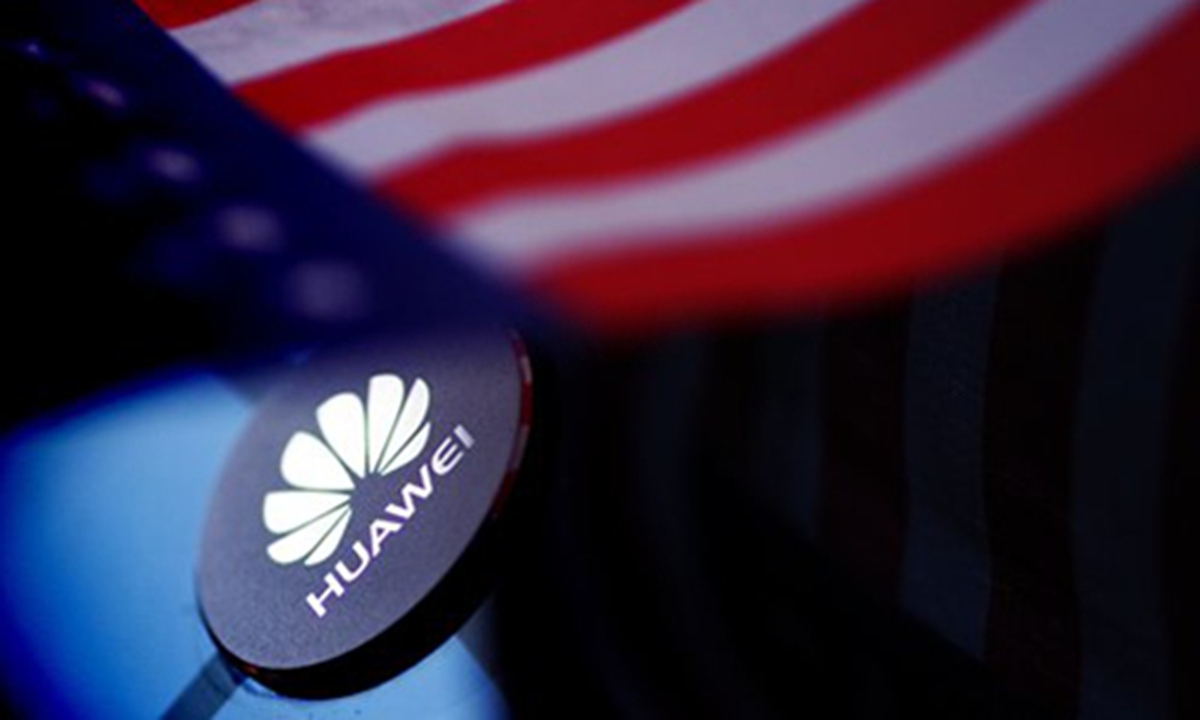Huawei CFO's predicament: How Chinese firms could reduce risks overseas?
By Wei Jianguo Source: Global Times Published: 2020/9/8 18:26:28

Photo: IC
When transiting through Vancouver in early December 2018, Huawei CFO Meng Wanzhou was arrested at the behest of the US government, which charged her with "bank fraud" based on the so-called key evidence - a PPT document obtained by HSBC executives during a private meeting with Meng in 2013.
According to media reports, it's proven that Meng didn't conceal facts from HSBC. Although HSBC claims to have been defrauded, it didn't sue Meng and Huawei and it didn't suffer any losses.
It's the US government that has targeted Huawei and Meng instead of punishing the London-based HSBC - which points to the fact that the case is a political case planned by the US government, and HSBC had agreed to collude with the US in the framing of Meng by betraying Huawei.
A closer look at the disclosed available information about the case shows many risks existed before and after Meng's arrest in Canada, providing lessons for other Chinese companies to hedge risks while operating overseas.
First of all, the US framing was long premeditated. Based on the publicly disclosed information, the US choreographed its plan to capture a Huawei top executive as early as 2012 or 2013. However, after Meng was arrested, Huawei still didn't know why. If a veteran company like Huawei has problem gauging the risks, it will be even more difficult for other Chinese companies to see the risks coming to them.
Secondly, the US investigation is wide-reaching. According to media reports, in US government' internal investigation of HSBC in 2013, there were around 200 to 400 US surveillance personnel who were authorized to check any information in the bank's daily operation. HSBC's clients are mainly from China.
During the investigation process, in addition to Huawei, were there other Chinese government agencies or other companies whose information was under US surveillance? China needs to be vigilant against the US indirectly monitoring Chinese companies through foreign banks and other third-party institutions.
Lastly, foreign banks may conspire with US long-arm jurisdiction at the expense of Chinese companies. The "key evidence" in the Meng case came from HSBC. And HSBC's attempt to justify its role of accomplice shows that, at a critical moment, foreign banks like HSBC will choose to sacrifice their Chinese customers to conspire with the US' long-arm jurisdiction.
Meng has been detained in Canada for more than 600 days, and the US suppression of Chinese companies continues to intensify. The US is resorting to every conceivable means, and may try to find breaches in the foreign partners of Chinese companies.
Faced with the risks, how can Chinese companies prevent them?
According to legal sources, in secret investigations conspiring with the US' long-arm jurisdiction, if foreign banks transferred personnel and data located in China outside the country without the permission of the Chinese government after October 2018, they may be suspected of violating the International Criminal Judicial Assistance International Criminal Judicial Assistance Law (ICJAL).
In response to the US crackdown on TikTok, the Ministry of Commerce updated its export restrictions on August 28, tightening control on technology exports. The strong response is expected to protect Chinese technology applications in a timely manner. And China will also improve regulations to plug the information security loopholes.
For Chinese companies overseas, when choosing financial partners, they should draw lessons from Huawei. They need to be vigilant against financial institutions that are subject to US sanctions. For businesses in sensitive countries and regions, priority can be given to state-owned banks to improve financial security awareness.
Meng is still under detention in Canada, and Huawei insists on proving her innocence by legal means to protect her rights and interests. At the latest hearing on August 17, Meng's lawyer required Canada to release the related papers during its contact with the US for Meng's arrest. These documents will further reveal how they violated Meng's legal rights, but the Canadian government covered up a lot of content on the grounds of sensitivity of the information and its national security.
The case has been highly politicized by the US, and couldn't be simply addressed by Huawei itself. China has recently reiterated its determination and stance to protect Chinese companies' legitimate interests. Amid deteriorating bilateral ties due to the detention of Meng, Chinese State Councilor and Foreign Minister Wang Yi met Canada's Minister of Foreign Affairs François-Philippe last month, urging the Canadian side to take the stance of being an independent country and come up with a decision as soon as possible to eliminate obstacles in the relationship.
The author is a former Chinese vice minister of commerce and executive deputy director of the China Center for International Economic Exchanges. bizopinion@globaltimes.com.cn
Posted in: EXPERT ASSESSMENT